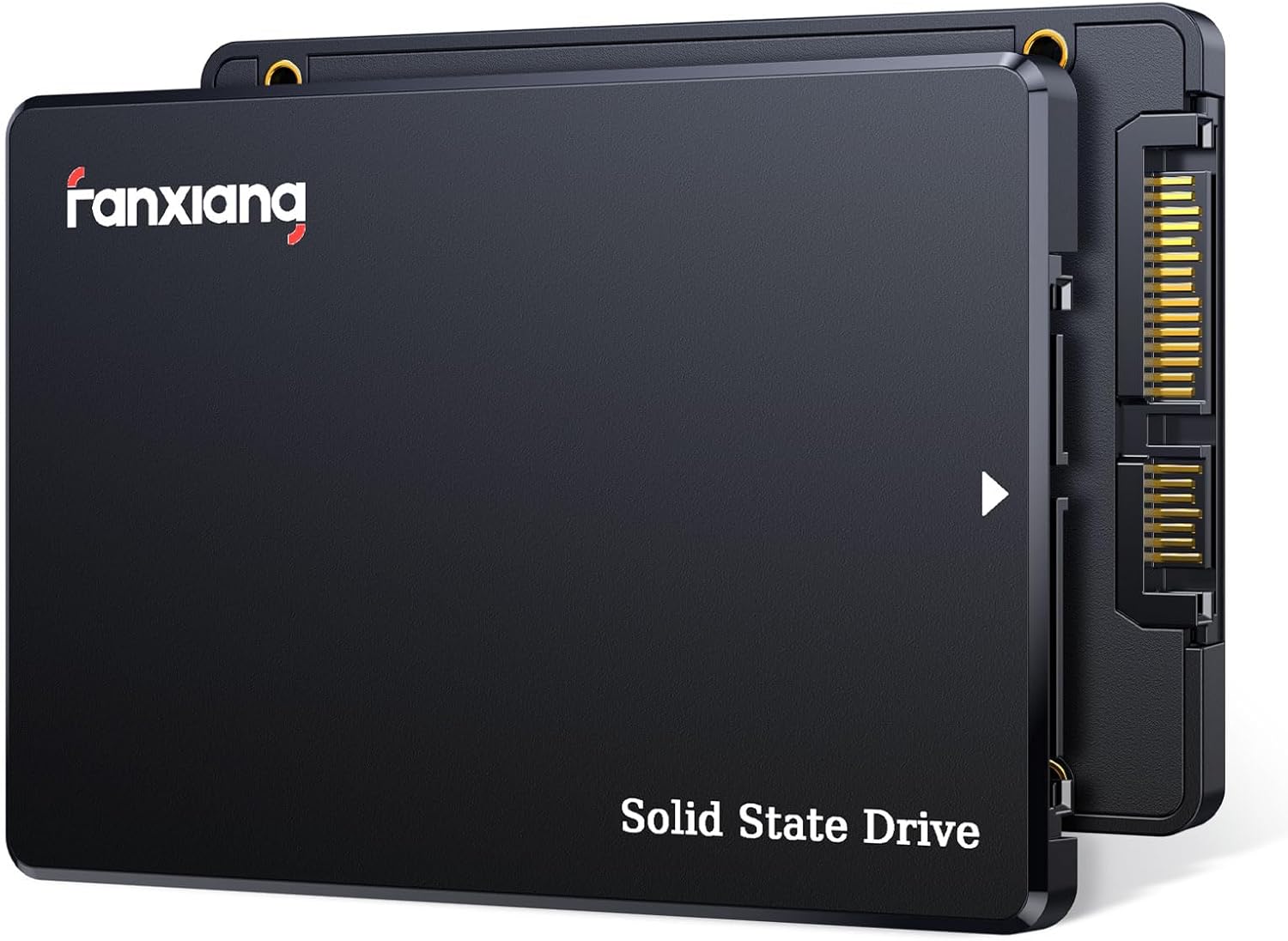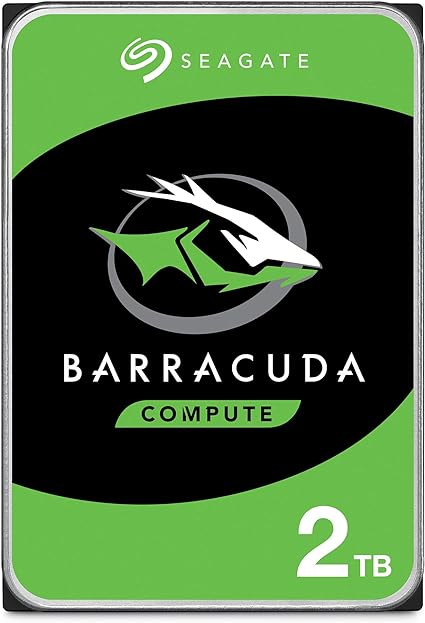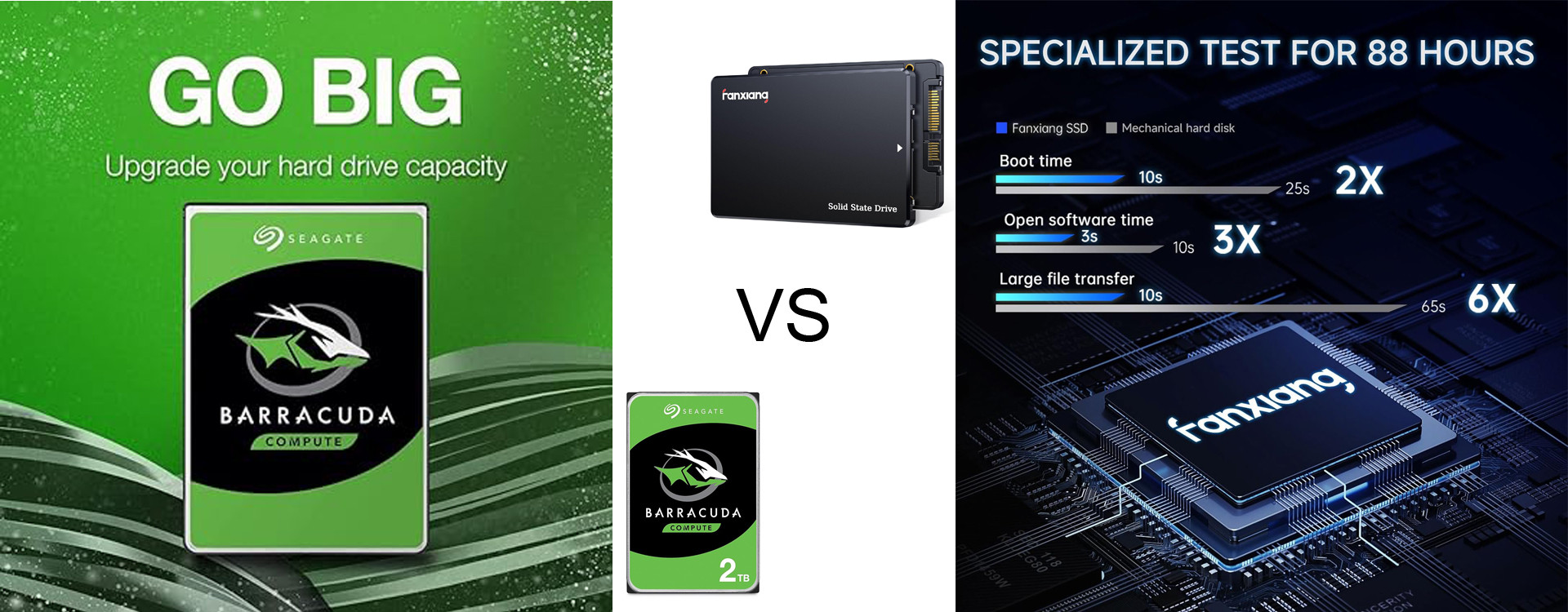Amazon Prime Day 2025: Your UK Guide to Unbeatable Savings! Get ready for the shopping event of...
Blog categories
Blog Search
Blog tags
Blog gallery
-

Seenda Folding Bluetooth Keyboard with Touchpad
-

5 In 2 USB C Hub With Ethernet Adapter
-

Gemini
-

HDD vs SSD
-

Gaming PC on Amazon
-

PlayStation Consoles on Amazon
SATA SSD vs. 2TB HDD
Fanxiang 2TB SATA SSD vs. Seagate BarraCuda 2TB HDD: A
Specific Comparison

Building upon the general comparison between SATA SSDs and traditional HDDs, this document provides a more focused look at two specific drives: a Fanxiang 2TB SATA SSD and a Seagate BarraCuda 2TB HDD (specifically models like the ST2000DM008, a common 7200 RPM version).
While the fundamental differences between SSD and HDD technology remain the same, examining specific models helps to understand the practical implications.
Key Comparison Points:
Here's a breakdown of how these two drives compare:
| Feature | Fanxiang 2TB SATA SSD | Seagate BarraCuda 2TB HDD (ST2000DM008) | Notes |
|
Technology |
NAND Flash Memory |
Spinning Magnetic Platters |
SSDs use electronic access, HDDs use mechanical. |
|
Interface |
SATA III (6 Gb/s) |
SATA III (6 Gb/s) |
Both use the same connection standard, but the underlying technology dictates speed differences. |
|
Form Factor |
Typically 2.5-inch |
3.5-inch |
SSDs are smaller and fit in laptops; HDDs are standard desktop size. |
|
Speed (Sequential Read) |
Around 500-550 MB/s |
Around 150-220 MB/s |
SSD is significantly faster for large file transfers. |
|
Speed (Sequential Write) |
Around 450-500 MB/s |
Around 150-220 MB/s |
SSD maintains a speed advantage in writing large files. |
|
Random Access Speed |
Very Fast |
Significantly Slower |
This is the biggest difference for OS responsiveness, application loading, and multitasking. |
|
Capacity |
2TB |
2TB |
Both offer the same stated capacity. |
|
Cost |
Higher cost per gigabyte |
Lower cost per gigabyte |
HDDs are much more budget-friendly for raw storage capacity. |
|
Durability |
More resistant to physical shock/vibration |
Sensitive to physical shock/vibration |
SSDs are better suited for environments where movement or vibration is a factor. |
|
Reliability |
Generally reliable; check specific model reviews for longevity. Has a TBW rating. |
Generally reliable for an HDD, but mechanical parts can fail. |
Fanxiang is a budget brand; research specific model reviews for user experiences on longevity. |
|
Noise |
Silent |
Audible (spinning, seeking) |
SSDs contribute to a quieter system. |
|
Power Usage |
Lower |
Higher |
SSDs are more energy-efficient. |
|
Ideal Use Case |
Operating system, applications, frequently played games. |
Bulk storage, media libraries, backups. |
SSD for speed-sensitive tasks, HDD for capacity-focused storage. |
Detailed Considerations:
-
Performance Impact: The most noticeable difference in daily use will be the speed. A system with the OS and frequently used programs on the Fanxiang SSD will boot up, launch applications, and load files much faster than a system relying solely on the Seagate BarraCuda HDD.
-
Storage Strategy: Given the cost difference, the Seagate BarraCuda 2TB HDD is an excellent choice for storing large amounts of data that don't require constant, high-speed access. This includes photo and video libraries, large document archives, and game installations where initial load times are acceptable. The Fanxiang 2TB SATA SSD, while offering the same capacity, is better utilized for the operating system and programs where its speed advantage provides a tangible benefit.
-
Brand and Reliability: Seagate is a well-established brand with a long history in the storage market. The BarraCuda line is a staple for consumer HDDs. Fanxiang is a newer, often more budget-focused brand in the SSD space. While many users have positive experiences with Fanxiang SSDs, it's always wise to look at recent reviews and reliability reports for the specific model you are considering, as performance and longevity can vary between budget SSDs. The Seagate BarraCuda's reliability is generally considered good for an HDD, but remember that HDDs are mechanical and have a higher inherent risk of mechanical failure over very long periods compared to the solid-state nature of SSDs.
-
Physical Installation: Ensure your computer has the correct bay size (2.5-inch for the SSD, 3.5-inch for the HDD) and available SATA data and power connectors.
Conclusion:
The Fanxiang 2TB SATA SSD and the Seagate BarraCuda 2TB HDD serve different primary purposes due to their underlying technology. The Fanxiang SSD excels in speed and responsiveness, making it ideal for improving your system's performance. The Seagate BarraCuda HDD provides a large amount of storage at a much more affordable price, making it suitable for bulk data storage.
For most users building or upgrading a desktop PC, a combination of a smaller, faster SSD (for the OS and core applications) and a larger, more economical HDD (for data storage) offers the best balance of performance, capacity, and cost. If you need 2TB of fast storage and your budget allows, the Fanxiang 2TB SATA SSD can provide that. If you need 2TB of storage, and speed is secondary to cost, the Seagate BarraCuda 2TB HDD is a strong contender.
For me and my personal preference was the Fanxiang 2TB SATA SSD, it fitted into my machine better and was a lot quieter but most important of all for me was the loading speed since I have been running my OS from this drive, But that's just my opinion...
 Check it out on Amazon for yourself
Check it out on Amazon for yourself
.
Allthejam.com participates in the Amazon Services LLC Associates Program, an affiliate advertising program designed to provide a means for us to earn fees by linking to Amazon.com and other affiliate-participating sites.












Leave a comment